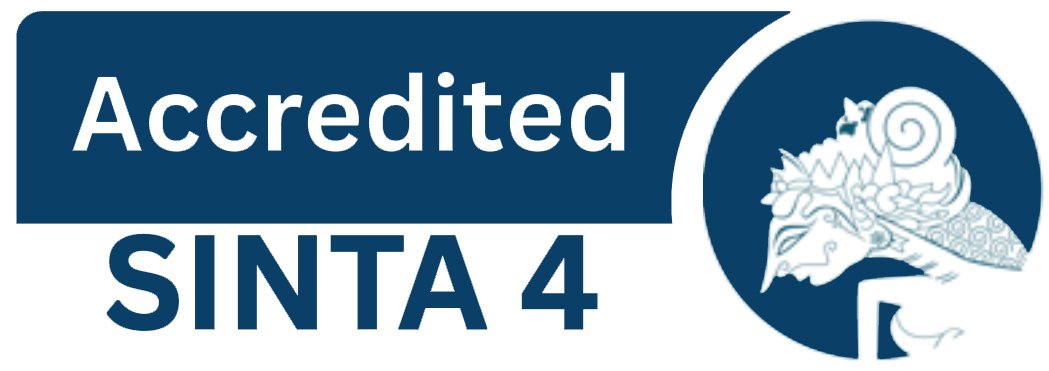IMPLICATION OF INTERNSHIP III PROGRAM ON ECOLOGICAL AWARENESS OF CIHAMPELAS VILLAGE COMMUNITY
DOI:
https://doi.org/10.22460/p2m.v6i2p%25p.1449Keywords:
ecological awareness, community, internshipAbstract
The Internship III program is one of the curricular programs for students of community education courses. Therefore, it is necessary to study the implications of the program for the ecological awareness of the community, because in principle the apprenticeship III program is the placement of students in the community in order to prepare students to respond to life's challenges in the community which at the same time also provides benefits to the community to be able to experiencing a renewed learning process with a basic charge of ecological awareness related to the Citarum Harum program. The theory used in this study is the theory of empowerment, learning theory, management theory of educational units outside of school. The research method used is descriptive qualitative with the aim of getting a more complete and comprehensive picture related to the implementation of community education programs. Based on research conducted, it was found that changes in community ecological awareness were built but not in the form of very rapid changes, still requiring other activities to maintain awareness and control program implementation in the future. This is in line with the theory of empowerment that the pattern of implementation of empowerment must use a comprehensive and sustainable approach. The main conclusion in this study is that there are quite good changes, especially in the ecological awareness of the community related to their role in the midst of the Citarum Harum program.
References
Akhyadi, A. S., & Mulyono, D. (2019). Program Parenting dalam Meningkatkan Kualitas Pendidikan Keluarga. Abdimas Siliwangi 1(1), 1-8.
Arif, S. (2007, December 12). Direktori Universitas Pendidikan Indonesia. Retrieved October 30, 2019, from Direktori Ekologi Manusia: http://file.upi.edu/Direktori/FPIPS/JUR._PEND._GEOGRAFI/197210242001121-BAGJA_WALUYA/EKOLOGI_PARIWISATA/Ekologi_Manusia_dan_Kesadaran_Individu_dalam_Pengelolaan_Lingkungan.pdf
Fitriana, W., & Mulyono, D. (2019). Implication Of Internship III Programs On Social Competency Of Siliwangi IKIP Penmas Students. P2M STKIP Siliwangi 6(1), 14-20.
Jayawardana, H. (2016). PENDIDIKAN KARAKTER PEDULI LINGKUNGAN SEJAK DINI SEBAGAI UPAYA MITIGASI BENCANA EKOLOGIS. Symbion (Symposium on Biology Education) (pp. 49-64). Yogyakarta: Prodi Pendidikan Biologi, FKIP, Universitas Ahmad Dahlan.
Kriswanto, E. S. (2013). Kesadaran Mahasiswa Fakultas Ilmu Keolahragaan Universitas Negeri Yogyakarta Terhadap Kesehatan Lingkunga Kampus. Medikora 11(2), 205-218.
Mariyani. (2017). Strategi Pembentukan Kewarganegaraan Ekologis. Konfrensi Nasional Kewarganegaraan III (pp. 10-17). Yogyakarta: Universitas Ahmad Dahlan.
Miles, & Huberman. (1992). Analisis Data Kualitatif. Jakarta: Universitas Indonesia Press.
Moleong, L. J. (2005). Metodologi Penelitian Kualitatif. Bandung: Remaja Rosdakarya.
Prayitno, A. (2018). Peran Satgas Citarum Harum Sektor IX. Bandung: Satgas Citarum Harum Kodam III Siliwangi.
Rogers, E. M., & FLoyd, F. (1987). Memasyarakatkan Ide-ide Baru (disarikan oleh Abdillah Hanafi). Surabaya: Usaha Nasional.
Soekanto, S. (2003). Sosiologi: Suatu Pengantar. Jakarta: Rineka Cipta.
Suharyanti, C., Murtini, W., & Susilowati, T. (2015). Pengaruh Proses Pembelajaran dan Program Kerja Praktek Terhadap Pengembangan Soft Skills Mahasiswa. Jurnal Pendidikan Administrasi Perkantoran, 1-8.
Sumardiono. (2014). Apa itu Homeschooling. Jakarta: Penerbit Gramedia.
Yunansah, H., & Herlambang, Y. T. (2017). Pendidikan Berbasis Ekopedagogik dalam Menumbuhkan Kesadaran Ekologis dan Mengembangkan Karakter Siswa Sekolah Dasar. EduHumaniora 9(1), 27-34.


















